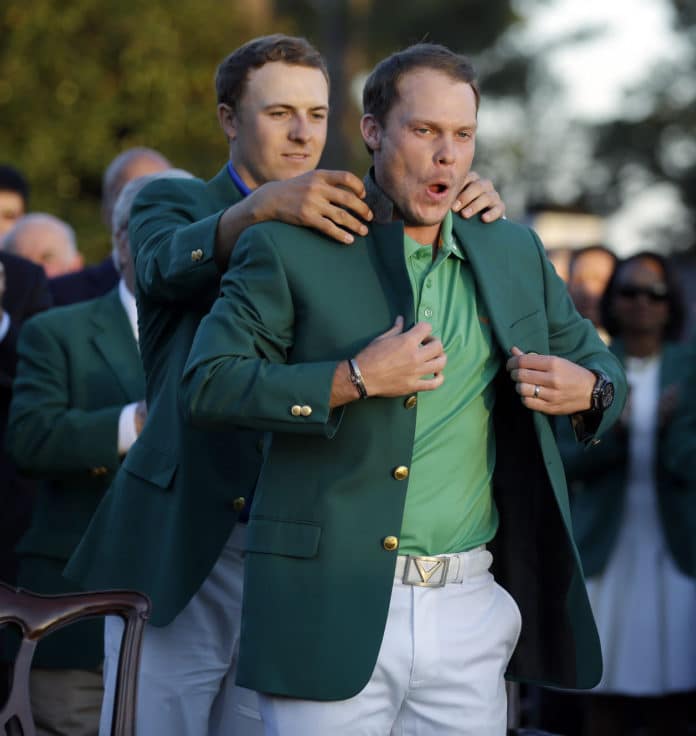We usually think of athletic grace as a physical quality – Roger Federer’s light-footed dance across the tennis court, say, or Steph Curry’s supple ball control and airy leaps to the rim. But as he watched the Masters golf tournament slip away from him, former champion Jordan Spieth showed us elegance of another kind. Here was the grace of an athlete keeping it together emotionally in the face of defeat.
Spieth’s loss was pretty universally called a collapse or, more dramatically, “the most shocking in golf history” and “an epic Masters meltdown.” He blew a five-shot lead over Englishman Danny Willett, in the tournament’s final round April 10, sending balls into the water, into the sand, everywhere, it seemed, but into the hole, and his hopes to repeat his Masters victory from 2015 scattered as well.
On top of that, there was to be no easy exit from the scene. In the Masters tradition, the reigning champ crowns the new one by helping him on with the famed green jacket. It was pretty cringe-inducing to think about this as we watched Spieth lose.
He’s 22. Somehow the young Texan has gained the wisdom of a seasoned pro, giving a calm and well-reasoned interview Saturday analyzing his faults that day while also counseling himself to let them go and start Sunday fresh, without regrets. Those words didn’t end up helping him much, and Spieth had to be Willett’s valet three times, putting him into the winner’s jacket in three different locales at the Augusta, Georgia, golf course, for three sets of cameras and spectators.
He did it stoically, respectfully – even, perhaps, a little fondly. “During one of these maneuvers, the collar of Willett’s new jacket popped up, and Spieth smoothed it down and patted him gently on the back,” wrote The Washington Post’s Dave Sheinin.
To be sure, Spieth was upset about losing, and he had some firm – but civil – words for photographers as he walked off the green: “Just not in the face, if you guys don’t mind, please.” He spoke lightly, betraying no bitterness. He stuck out his hand as if to ward off photos, then softened the gesture into a wave.
Willett graciously called his rival “a class act” and more: “Just shows the character of the guy that you’re going to have up and around the world No. 1 spot for the next many, many years.”
All of which means there’s a lot to be hopeful about. A loss can be inspiring. There’s suspense and exhilaration in a win, in rejoicing vicariously with the victor. Willett’s delight was irresistible, and ours only multiplied sympathetically when we glimpsed the endearing screen-saver of his newborn on his iPhone.
But there’s something satisfying, and maybe even more moving, in a graceful loss, because while most of us will never face the stakes of a pro championship, we all know what a killer of a job it is to swallow anger and disappointment, even on a much smaller scale. And yet that juncture of living heartbreak, vulnerability and improbable grace can be a moment of revelation: What’s deep down inside, that even a kick in the teeth can’t touch?
“Everyone knows the difficulty of things that are exquisite and well done,” wrote Baldesar Castiglione in 1528 in his Renaissance best-seller, The Book of the Courtier. “So to have facility in such things gives rise to the greatest wonder.”
Everyone knows the difficulty of what Spieth faced in coming into the Masters as a very young reigning champ, and then what he faced in faltering Saturday and in dealing with that to play again Sunday. By finally failing but refusing to let himself down, Spieth became a different kind of master.
Sarah Kaufman is a dance critic for the Washington Post and author of the book The Art of Grace.






